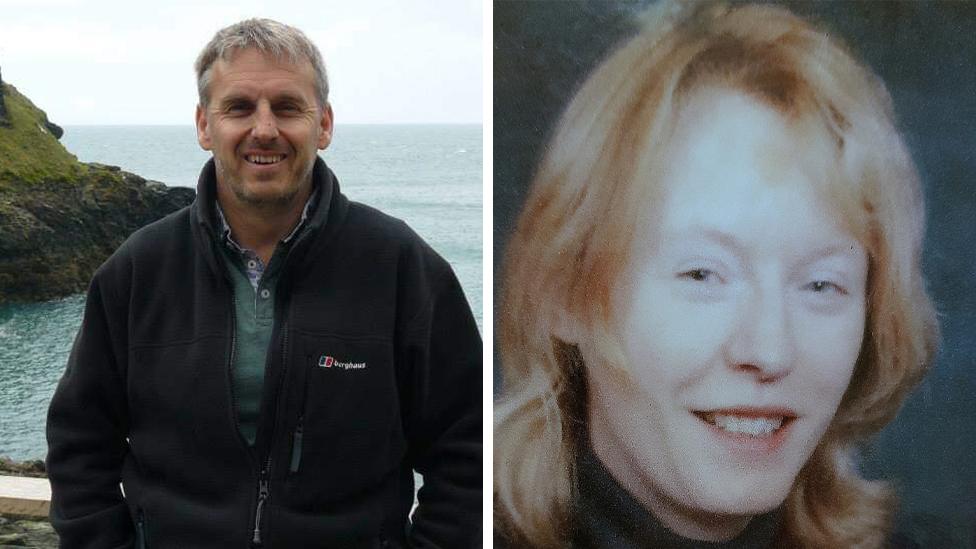The Cambridgeshire bus route that costs £124 per passenger
- Published
- comments
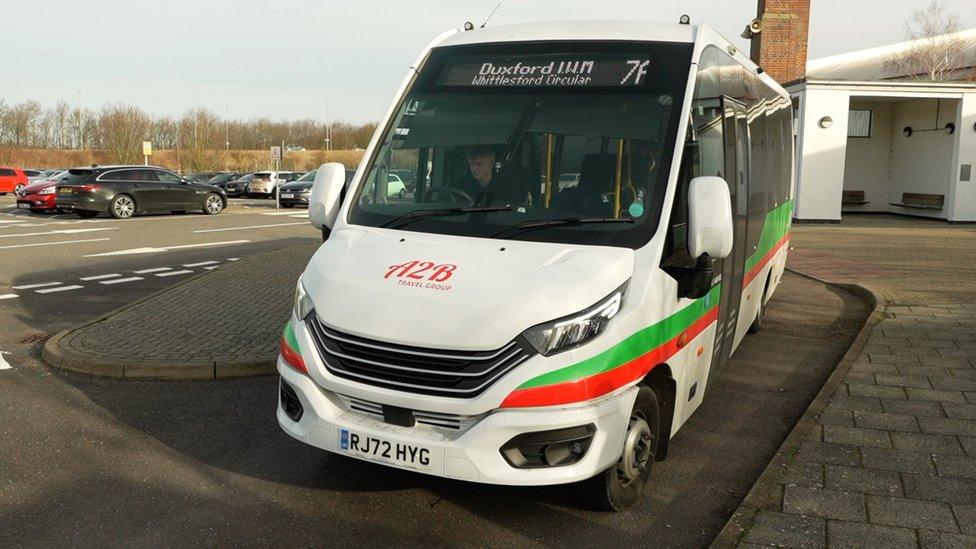
The 7A carried 771 passengers in 2022-23 but its operator said it had seen fewer in recent months
The 7A bus runs four times a day, six days a week. Its 12.5 mile (20 km) route connects four settlements in South Cambridgeshire. But it only runs thanks to a tax payer subsidy of £124 per passenger. Its operator admits it is not value for money and the elected mayor responsible for transport is planning big changes to the local network. What does the 7A tell us about how bus services need to change?
Jean Wakefield is three months shy of her 80th birthday. She is also - probably - the 7A's most regular passenger.
Most Mondays, Wednesdays and Fridays she catches it to shuttle between her home near the Imperial War Museum at Duxford airfield and a friend's house in the village of Sawston.
She is one of three passengers we meet on the 7A, as it completes two loops through countryside that straddles the M11.
"There were more people who used to use it, but several of them have died," Mrs Wakefield, who trained as a nurse, says.
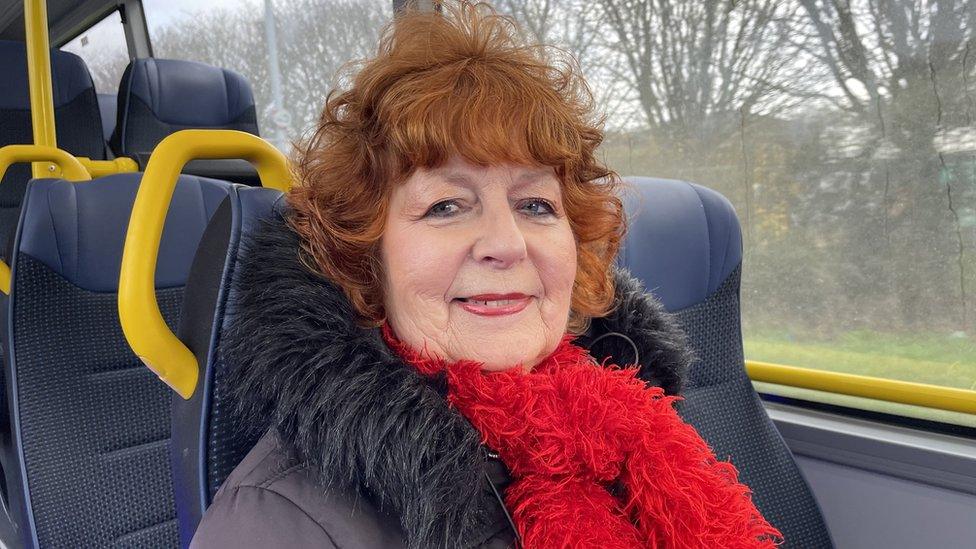
Jean Wakefield, 79, catches the 7A up to three times a week
How would she improve it?
"It doesn't always turn up. It needs to be reliable. I think more people would use it if it was more regular."
She agrees it gives her some independence and says without it she would have to walk, take a taxi or ask a friend for a lift.
The route, which is set by the local transport authority, used to include one of Cambridge's park and ride sites but has been trimmed over the years.
Brian and Angela Swann, both 70, board the bus in Whittlesford, a village to the south of Cambridge.
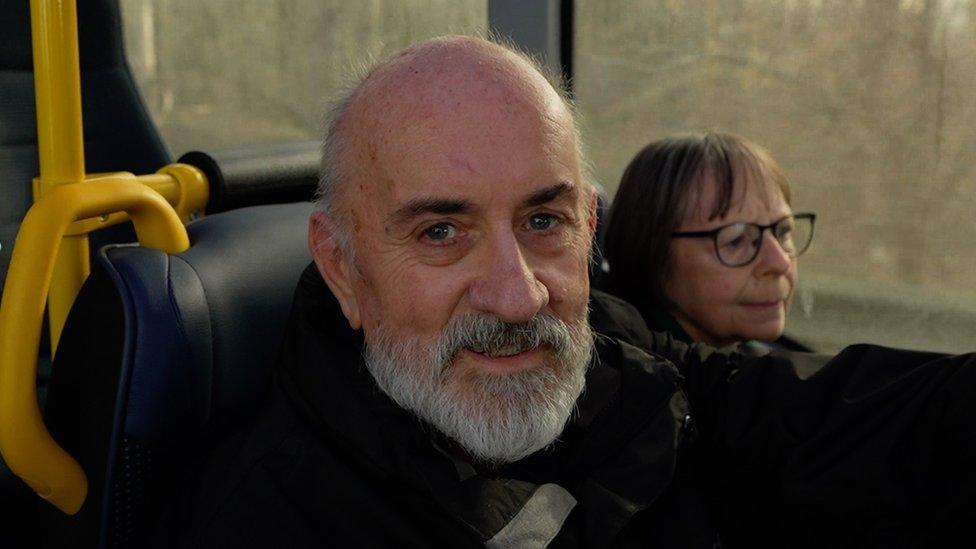
Brian Swann and his wife caught the 7A to visit the Imperial War Museum at Duxford
The retired couple - who use public transport "an awful lot" - are on their way to the Imperial War Museum, after travelling from Bourne in Lincolnshire via another bus and a train in to Whittlesford Parkway station.
Mr Swann, who worked in logistics, said the £124 subsidy was "a lot of money".
Is it worth it?
"Having not been on this bus before and from what I've seen, it probably isn't," he says.
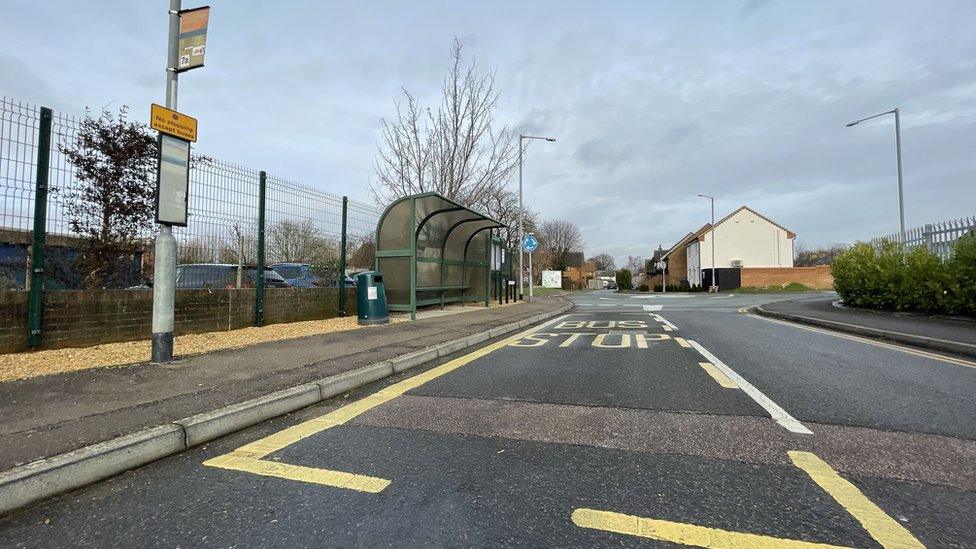
The 7A is the only service that calls in Heathfield, near Duxford airfield
A2B Travel Group has run the 7A since 2016.
In 2022-23, the service carried 771 passengers, despite around 23,000 people living nearby.
Brian Clifford, A2B's owner and managing director, says he expects passenger numbers to be lower this year.
Mr Clifford says "as much as you try and alter it and play with it" the 7A "just never seems to work".
He adds: "It doesn't run from a high population area to a high population area. It doesn't run particularly where shoppers or commuters want to go."
But it provides "links to villages and settlements that have nothing else".
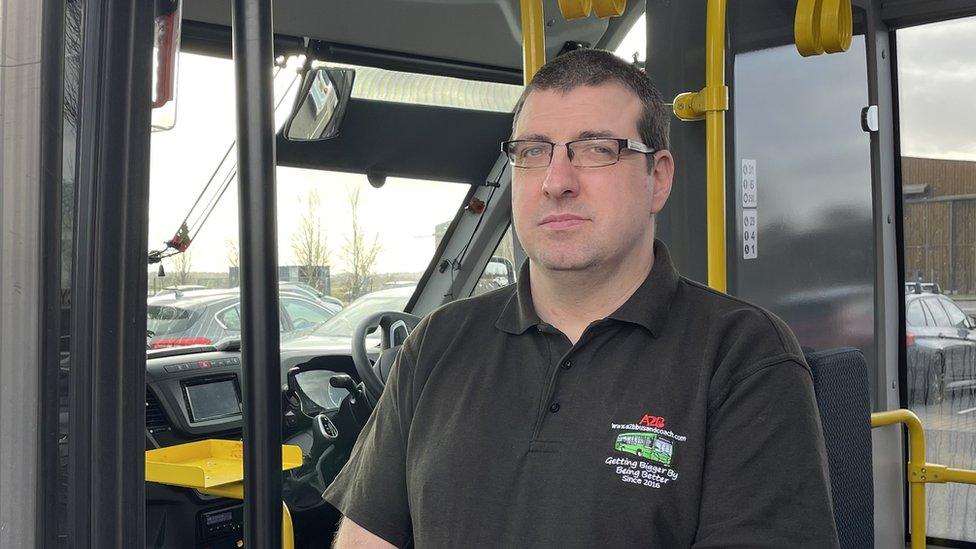
Brian Clifford said the 7A needed a better "start and end point"
"For the very few passengers that use it, it really is important," he continues.
Is it worth £124 per passenger?
"As a taxpayer myself, I would have to say 'no' on that one."
So, what needs to change?
"It needs to be more thought out, it needs to crucially have a better start and end point," he says. "It needs to operate where people want to go and actually needs to operate probably a little more frequently."
Mr Clifford said the bus industry is still facing "Covid fear", which is putting some passengers off travelling, as well as a shortage of drivers.
To try to recruit and retain more staff, A2B has started training in-house.
Today's driver, Charlie Morley, passed his test in December, a few days after turning 18.
He wanted to be a driver "for as long as I can remember" and recalls being "mesmerised" watching bus drivers when he was younger.
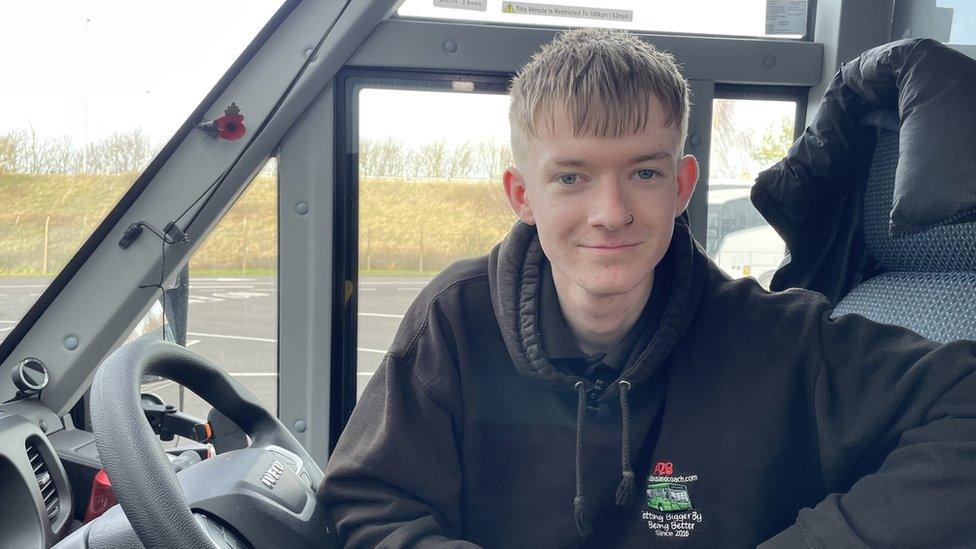
Charlie Morley, 18, is one of the youngest bus drivers in the UK
He says: "For me I just like helping people. It's just an easy way you can be social, whilst being able to help people get where they're going and a lot of people appreciate it."
Looking younger than many drivers has led to passengers questioning his credentials. He adds: "I'm frequently getting asked where my dad is and stuff like that."

The above figures are for financial years, running from April to the end of March.

Attracting drivers is one issue, attracting passengers is another. Figures up to March 2023 showed a 27% decline in journeys per head over a decade in Cambridgeshire; they are 16% down on the pre-pandemic level in 2019, but have shown signs of recovery.
Directly elected Labour mayor, Nik Johnson, who chairs Cambridgeshire and Peterborough Combined Authority (CPCA) Board, is responsible for public transport in the area.
Last year, CPCA reviewed 19 subsidised bus routes, including the 7A. While it had the highest per passenger subsidy, six others cost more than £40; all 19 were above CPCA's target of a £12 per passenger.
The review recommended the 7A is merged with a home-to-school service and could link up with other services to make savings.
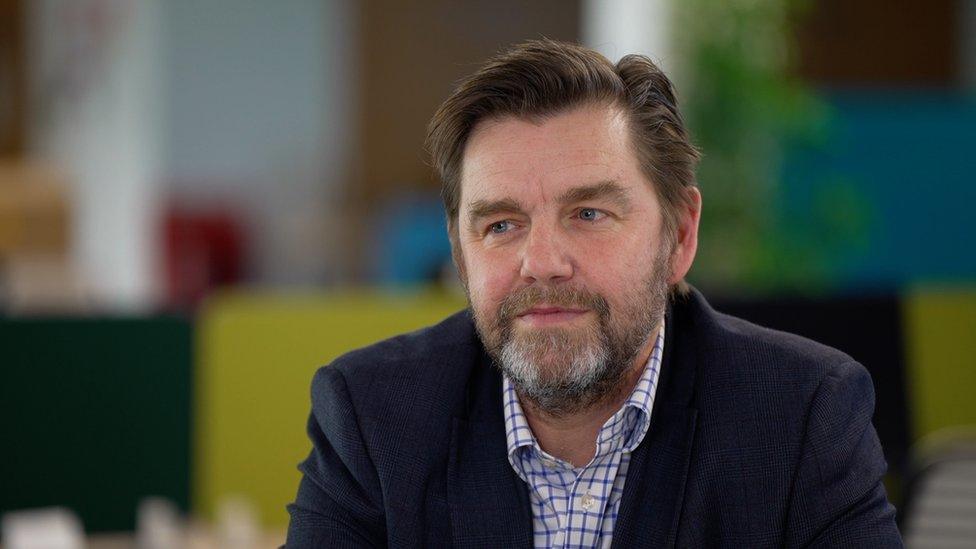
Mayor Nik Johnson wants to "take back control" of buses in Cambridgeshire and Peterborough
Mr Johnson said CPCA had "taken the bull by the horns" by reviewing the 19 costly routes and that "nobody could justify" the 7A's level of subsidy.
Later this week he is hoping the Board approves a budget that would see a mayoral "bus tax" increased from a yearly average of £12 per household to £36, raising around £11m.
The money would support around 30 new or expanded routes and on-call services, as well as cutting fares to £1 for under-25s.
Subsidising routes, he says, is important to reduce social isolation "otherwise who is going to look after these people" who do not have alternative transport.
But he adds he would be looking for value for money.
The mayor said passenger numbers were a "challenge" and that "we want more people on the buses".
Longer term, he wants to introduce franchising in to the area's bus network to "take back control" – as well as "responsibility" for – services. The cost could be around £20m.
"The humble bus is an answer to many people's day to day lives – how they get to work, how they get to education and how they socialise," he says.
"If we don't invest in them and if we don't make a change to those numbers – increase the patronage – we're going to have some significant challenges."
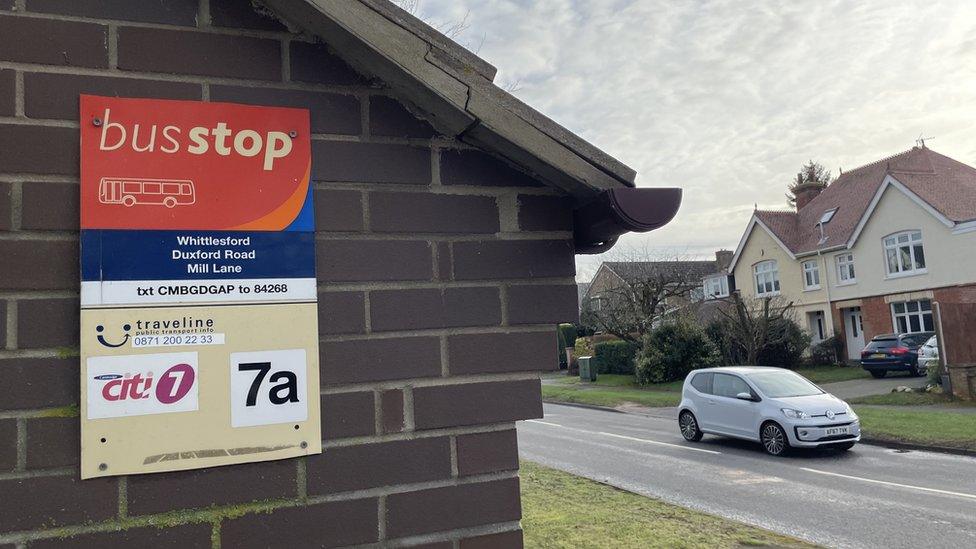
A review has recommended the 7A merges with a home-to-school service

Find BBC News: East of England on Facebook, external and Instagram, external. If you have a story suggestion email eastofenglandnews@bbc.co.uk or get in touch via WhatsApp on 0800 169 1830
- Published25 January 2024
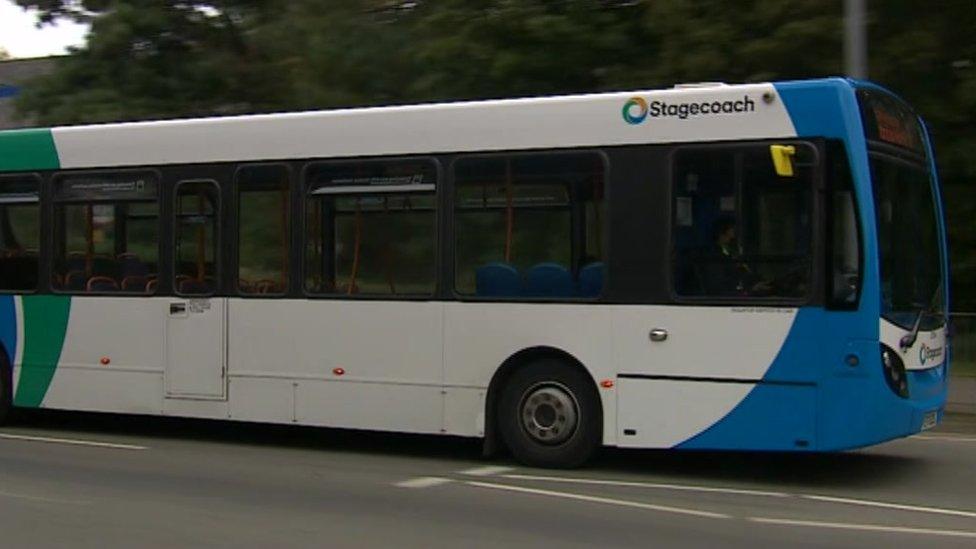
- Published2 November 2023
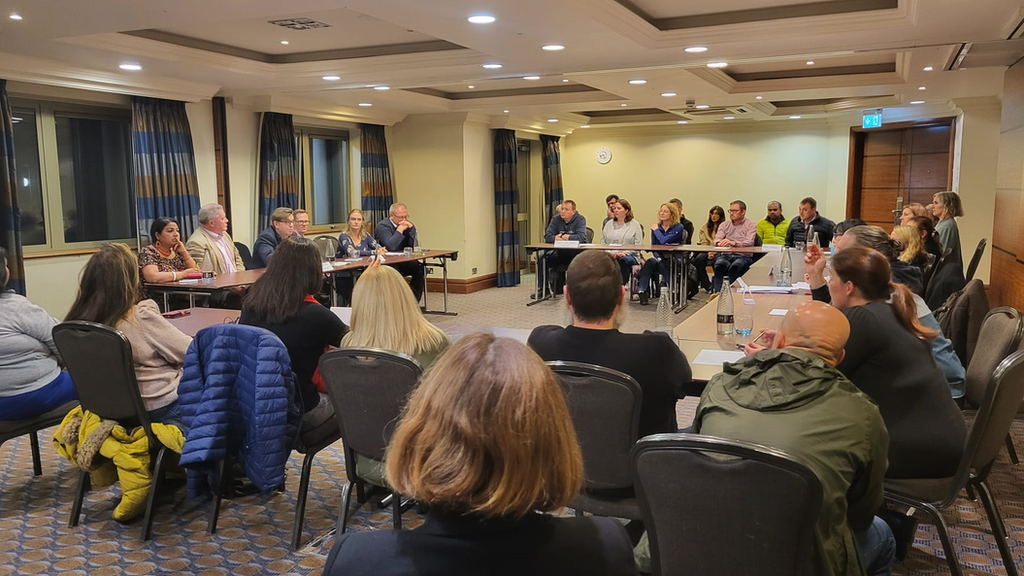
- Published12 December 2023
